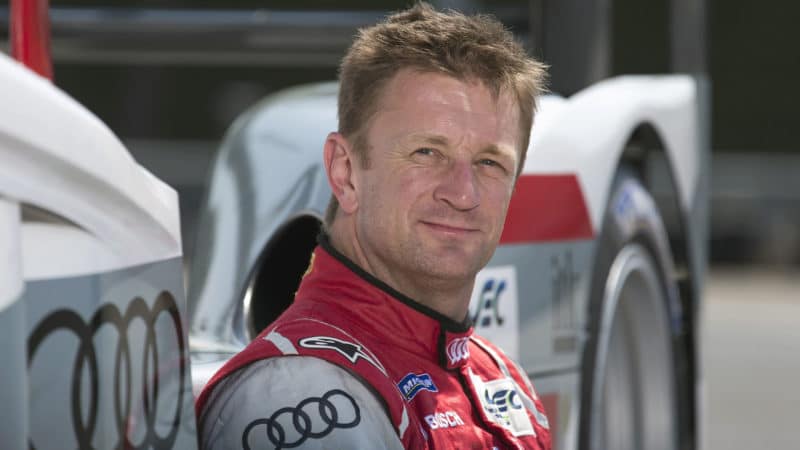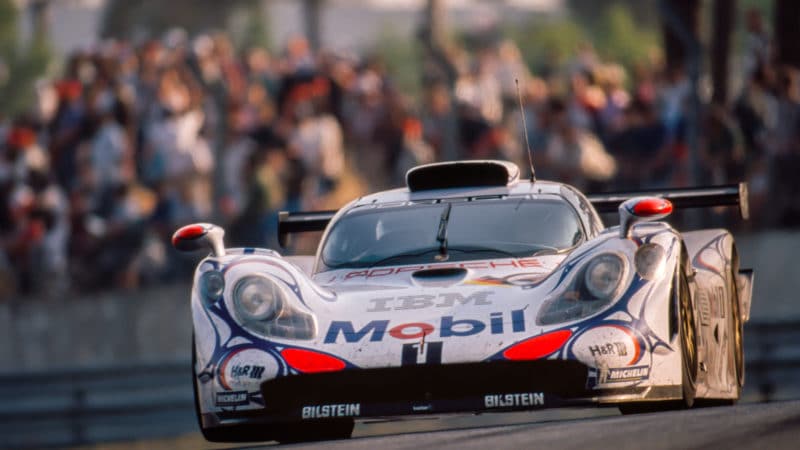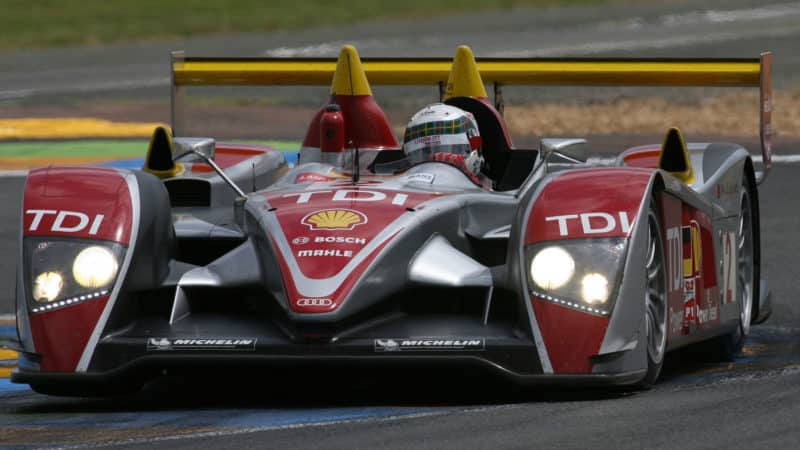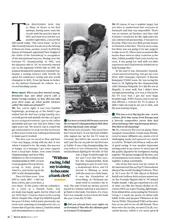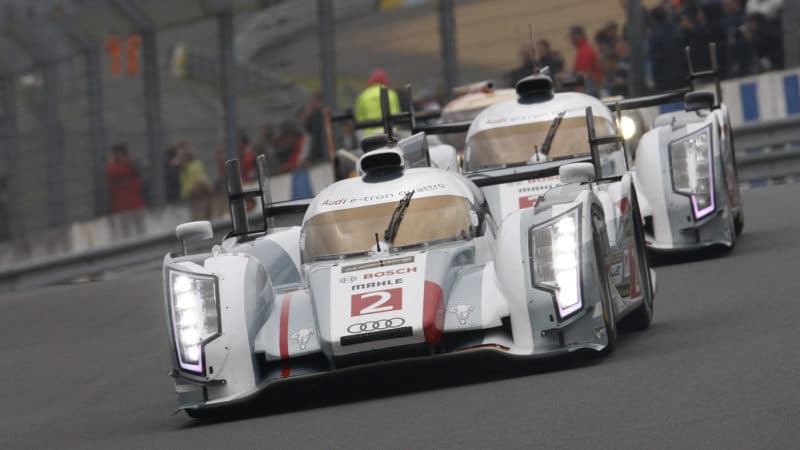Before he knew it, the man from Dumfries was in the Stuttgart hot-seat driving the fearsome 911 GT1 at Le Mans ‘97 – not that he was totally comfortable with the experience first time round.
“Terrifying – absolutely and utterly terrifying,” he says of his initial La Sarthe laps. “I had driven Formula 1 cars, probably 150 days worth in between McLaren and Benetton, so I knew what speed was.
“But I remember it as if it was yesterday, going down to that first chicane – it was like being in Star Trek and going into Warp Factor 3. Back then there were a lot of tram lines in the middle of the road, where the trucks had been going every day. It wasn’t as if it was resurfaced every year.
“The car was sort of dancing around in these tram lines, it didn’t have huge downforce.
“When I got a telephone call from Porsche it was like someone said, ‘We believe in you.'”
“I braked towards the end of the straight, downshifted and then had to accelerate and upshift again, because I’d braked so early for the corner! Your first laps were like 15/20 seconds off the pace. It’s easier these days!”
That ’97 Le Mans attempt ended in a DNF, but one year later he was a La Sarthe winner, the Porsche pulling through where the might of Mercedes, BMW and Toyota couldn’t. McNish relished the moment, and said he felt totally rejuvenated by sports cars.
“When I first got a telephone call from Porsche motorsport boss Herbert Ampferer, it was like someone said, “Yeah, we believe in you.”
“It’s difficult to estimate what value that has, and also what lap-time value that has, but without question, they had confidence in me.
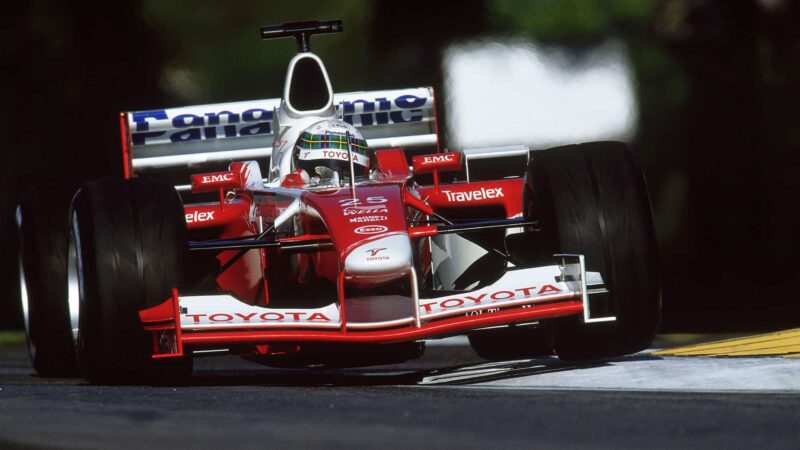
Tough year in F1 brought a ruthlessness which McNish utilised once at Audi
Mark Thompson/Getty Images
“When I was standing on the podium at Le Mans ‘98, it was a Laurent Aïello, Stéphane Ortelli, and myself – three complete rookies. Not the fancied runners but generally, I think, the quickest ones who delivered in terms of getting the car to the end and winning. But I had no idea how it would change my career in the way that it did.
“Suddenly it brought me back to people’s attention, including in F1. It just showed the power of Le Mans, one of the biggest sporting events in the world.”
After Porsche pulled out, McNish moved over to Toyota before the Japanese giant quit sports cars too, but the links he had made with the latter swept him along into its burgeoning grand prix squad.
Though that partnership ultimately ended after a single 2002 season, McNish says the experience made him an even better sports car driver.
